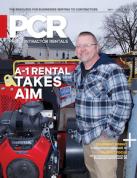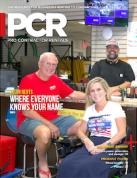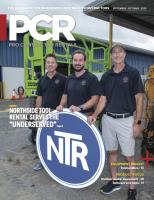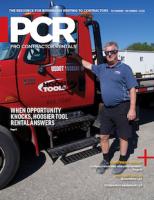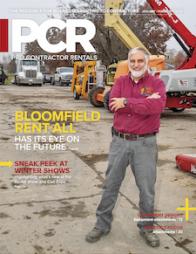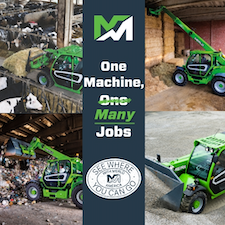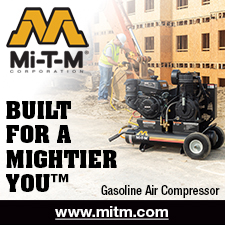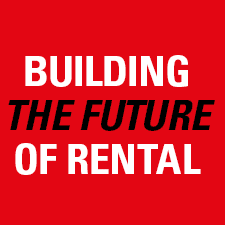Resources raise awareness of safe MEWP use
Genie AWP offers new content prepares customers for upcoming standards changes in North America.
In support of OSHA’s upcoming National Safety Stand-Down to Prevent Falls in Construction week, May 6-10, Genie shares new resources that raise awareness aboutthe safe use of mobile elevating work platforms (MEWPs) in the aerial access industry.
The new Genie “Safe Use Plan Guidance” whitepaper provides tips for creating a safe use plan when operating MEWPs. The Genie “Big Changes” music video highlights important information on MEWP operator and occupant training requirements. Additional information and resources from Genie on the new MEWP standards in North America are available for customers to access at https://www.genielift.com/en/support/ansia92-csab354.
“With the new ANSI A92.22-2018 and CSA B354.7:17 standards on everyone’s mind these days, these new resources will help customers prepare for the changes going into effect in North America,” says Scott Owyen, Genie Senior Training Manager, Terex AWP. “The goal of OSHA’s National Safety Stand-Down each year is to raise awareness of best practices for working safely at height. The new MEWP standards in North America will go into effect soon, and our industry as a whole needs to start preparing now for the impact these changes will have on our fleets, our customers and equipment operators. Participating in the OSHA National Safety Stand-Down efforts gives us the opportunity to increase our customers’ awareness about the proper use of aerial equipment on jobsites in compliance with the new MEWP standards.”
Safe Use Guidance Plan
In the new ANSI A92.22-2018 and CSA B354.7:17 standards, business owners that employ the use of MEWPs are required to have a safe use plan in place for their organization. “A well thought out plan can help keep everyone working around MEWPs safe by reinforcing best practices on the job, provides help identifying risks and making sure employees know what steps should be taken if something unexpected happens,” says Owyen.
According to the new MEWP standards, a safe use plan specific to MEWPs must address the following:
- Risk assessment to identify hazards, evaluate risks, develop control measures and communicate with everyone affected
- Planning of operation that includes rescue procedures for the safe recovery of persons and/or the MEWP in the event of an emergency
- The selection, provision and use of an appropriate MEWP for the task as well as any work equipment associated with it
- MEWP inspections and repairs as required by the applicable standards and the manufacturer
- MEWP usage: Operator training and certification, familiarity with specific MEWP in use, understanding of local site requirement, proper supervision, preventative measures for unauthorized usage, safety guidelines for anyone working near a MEWP and properly documenting all relevant job-related data
For tips on how to create a safe use plan that complies with the new MEWP standards, customers can download the Genie MEWP Safe Use Plan Guidance whitepaper at: https://aerialpros.genielift.com/mewp-safe-use-plan/.
Big changes
Training is mandated by industry standards, including specific guidelines outlined in the new ANSI A92.22-2018 and CSA B354.7:17 standards. Significant changes in the new MEWP standards that customers need to be aware of include:
- Safe Use Planning
- Supervisor Training
- Occupant Training
- Maintenance and Repair Personnel Training
“One of the biggest challenges facing our industry today is how to increase awareness about why safety training is so important,” says Owyen. “As the industry is preparing to implement the new ANSI and CSA standards changes, customers need to understand their responsibilities regarding training requirements for MEWPs. And, this understanding cannot be limited to what they’re required by law and enforced by OSHA to do, but that they know there are very good reasons for the training to keep their operators safe.”
In an effort to better capture customers’ attention, Owyen and his team recorded a music video that highlights the importance of the new MEWP standards’ training requirements. To watch the new Genie Big Changes MEWP Music Video, visit: https://youtu.be/6vQYztvFKmE.
MEWP standards changes
ANSI (United States) and CSA (Canada) standards have, for almost four decades, provided best practices for safe, reliable access to work at height and have delivered a consistent benchmark for safe machine design in North America. “Standards set a safety level for all participants in the market,” says Owyen. “Good standards also bring global markets closer together, driving commonality and stronger market competition.”
According to Owyen, the current ANSI and CSA standards for safe use and training have not been updated for many years (the current ANSI boom, scissor lift and manually propelled standards were last updated in 2006, and CSA standards go back even further). Now in an effort to align more with an international standard (ISO 16368), ANSI and CSA standards will share more similarities. For example, the current ANSI and CSA standards are product specific (i.e. there is a standard for each type of MEWP), but the new revisions will be subject matter based standards (i.e. safe use, training and design). Benefits from incorporating ISO concepts in the new ANSI/CSA standards include: North American aerial lift manufacturers, including Genie, will be more closely aligned with global markets like Europe, Australia and China.
To prepare for these standards changes, it is important to understand the more significant aspects of the new MEWP standards in North America. To learn more, information and additional resources are available at https://www.genielift.com/en/support/ansia92-csab354.
For more information about Genie products and services, visit: www.genielift.com.




